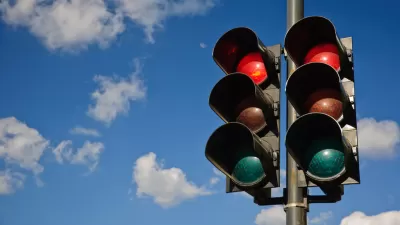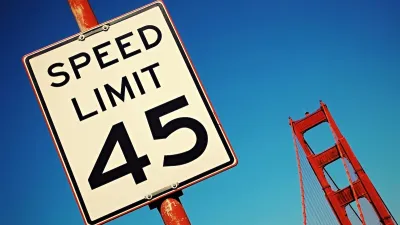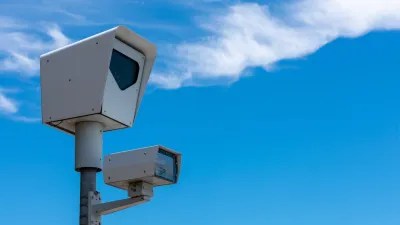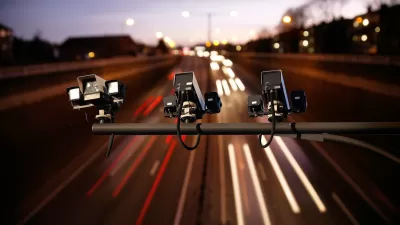Some states and cities are citing personal liberty and constitutional rights to oppose automated traffic enforcement and other road safety measures.

With traffic fatalities on the rise in many states, it would seem natural for state leaders to tap into the $15 billion in federal funding available for road safety projects. But 'liberty politics' could hinder efforts to improve traffic safety, writes Matthew Brown, as illustrated by this quote from a Utah resident: "This country was founded on freedom and liberty, this country was not founded for safety or security," said Dalane England, adding that "People are going to die if we drive automobiles."
For example, while the U.S. Department of Transportation recommends automated traffic enforcement, only 16 states have speed camera programs, and six states explicitly prohibit both speed cameras and red light cameras. Utah, for example, banned red-light cameras in the 1990s. "While local leaders, law enforcement and some residents argued at the time that the technology would save lives, opponents won the day by framing the issue around personal liberty." More recently, Florida governor Ron DeSantis expressed a similar sentiment about proposed speed cameras in his state.
"Those arguments may surface again as states and localities decide how they want to use their share of funding set aside for road safety measures," writes Brown. "Federal guidance also requires at least 15% of a state’s highway safety improvement program funding targets pedestrians, bicyclists and other nonmotorized road users if those groups make up 15% or more of the state’s crash fatalities."
FULL STORY: How personal liberty politics could prevent states from addressing traffic fatalities

Trump Administration Could Effectively End Housing Voucher Program
Federal officials are eyeing major cuts to the Section 8 program that helps millions of low-income households pay rent.

Planetizen Federal Action Tracker
A weekly monitor of how Trump’s orders and actions are impacting planners and planning in America.

Ken Jennings Launches Transit Web Series
The Jeopardy champ wants you to ride public transit.

Rebuilding Smarter: How LA County Is Guiding Fire-Ravaged Communities Toward Resilience
Los Angeles County is leading a coordinated effort to help fire-impacted communities rebuild with resilience by providing recovery resources, promoting fire-wise design, and aligning reconstruction with broader sustainability and climate goals.

When Borders Blur: Regional Collaboration in Action
As regional challenges outgrow city boundaries, “When Borders Blur” explores how cross-jurisdictional collaboration can drive smarter, more resilient urban planning, sharing real-world lessons from thriving partnerships across North America.

Philadelphia Is Expanding its Network of Roundabouts
Roundabouts are widely shown to decrease traffic speed, reduce congestion, and improve efficiency.
Urban Design for Planners 1: Software Tools
This six-course series explores essential urban design concepts using open source software and equips planners with the tools they need to participate fully in the urban design process.
Planning for Universal Design
Learn the tools for implementing Universal Design in planning regulations.
Ada County Highway District
Clanton & Associates, Inc.
Jessamine County Fiscal Court
Institute for Housing and Urban Development Studies (IHS)
City of Grandview
Harvard GSD Executive Education
Toledo-Lucas County Plan Commissions
Salt Lake City
NYU Wagner Graduate School of Public Service





























